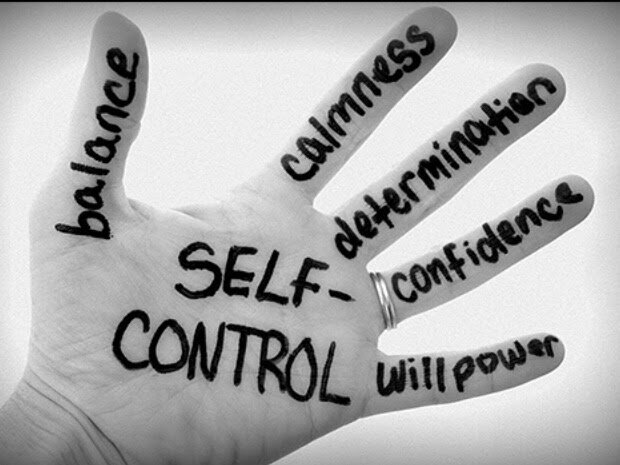In today’s fast-paced world, where stress and distractions are common, the virtues of self-control and calmness are more valuable than ever. These qualities are not just personal attributes but essential skills that can greatly impact your life, work, and relationships. This blog post will delve deep into the concepts of self-control and calmness, exploring why they are strengths and how you can cultivate them to achieve mastery in your life.
Understanding Self-Control
What is Self-Control?
Self-control refers to the ability to regulate one’s emotions, thoughts, and behaviors in the face of temptations and impulses. It involves resisting short-term temptations to achieve long-term goals. Essentially, it’s the power to stay focused and disciplined despite challenges and distractions.
The Importance of Self-Control
- Achieving Goals: Self-control helps you stay committed to your long-term objectives. Whether it’s sticking to a healthy diet, saving money, or advancing in your career, self-control is crucial for success.
- Improved Relationships: By controlling your emotions and reactions, you can maintain healthier and more harmonious relationships. It allows for better communication and understanding.
- Mental Health: Practicing self-control can reduce stress and anxiety, as you are better equipped to handle life’s ups and downs without being overwhelmed.
Scientific Perspective
Research has shown that self-control is linked to the prefrontal cortex, the part of the brain responsible for decision-making and behavior regulation. Strengthening this area through practice can enhance your ability to exercise self-control.
Cultivating Self-Control
1. Set Clear Goals
Having specific, measurable, and achievable goals gives you a clear direction and purpose. This makes it easier to exercise self-control as you are motivated by a clear vision of what you want to achieve.
2. Develop a Routine
Establishing a daily routine helps you build habits that require less conscious effort over time. This consistency reinforces your self-control as you become accustomed to a structured way of living.
3. Mindfulness and Meditation
Practicing mindfulness and meditation can improve your self-awareness and emotional regulation. These practices help you stay present and make more deliberate choices, enhancing your self-control.
4. Avoid Temptations
Identify and minimize triggers that lead to impulsive behaviors. This might involve changing your environment, such as keeping unhealthy snacks out of your home or using website blockers to avoid online distractions.
5. Positive Reinforcement
Reward yourself for demonstrating self-control. Positive reinforcement can motivate you to maintain disciplined behavior.
Calmness is Mastery
What is Calmness?
Calmness is the state of being free from agitation, excitement, or disturbance. It is a mental and emotional steadiness that allows you to remain composed and clear-headed in stressful situations.
The Importance of Calmness
- Better Decision Making: A calm mind makes better decisions. When you are calm, you can think more clearly and rationally, leading to more effective problem-solving.
- Health Benefits: Calmness reduces the negative impact of stress on your body. It can lower blood pressure, improve sleep, and boost your immune system.
- Enhanced Performance: Whether in sports, work, or daily activities, calmness improves your focus and performance. It allows you to execute tasks with precision and care.
Scientific Perspective
Calmness is associated with the parasympathetic nervous system, which promotes relaxation and recovery. Techniques that activate this system, such as deep breathing and progressive muscle relaxation, can enhance your calmness.
Cultivating Calmness
1. Breathing Techniques
Deep, slow breathing can activate your parasympathetic nervous system, promoting relaxation. Practice techniques like diaphragmatic breathing or the 4-7-8 method to calm your mind.
2. Meditation
Regular meditation practice trains your mind to stay present and focused. It reduces stress and increases your capacity for calmness in everyday situations.
3. Physical Activity
Exercise is a powerful tool for reducing stress and promoting calmness. Activities like yoga, tai chi, and walking in nature can be particularly effective.
4. Time Management
Organizing your time effectively can reduce the chaos and stress in your life. Prioritize tasks, set realistic deadlines, and take regular breaks to maintain a calm and productive workflow.
5. Healthy Lifestyle Choices
Adequate sleep, a balanced diet, and avoiding excessive caffeine and alcohol can significantly impact your ability to stay calm. A healthy body supports a calm mind.
Integrating Self-Control and Calmness
The Synergy of Self-Control and Calmness
Self-control and calmness complement each other beautifully. Self-control helps you manage your impulses and stay focused on your goals, while calmness provides the mental clarity and emotional stability needed to make wise decisions.
Practical Tips for Integration
- Mindful Self-Discipline: Incorporate mindfulness into your discipline practices. Pay attention to your thoughts and feelings without judgment, which can help you maintain self-control.
- Balanced Routine: Create a daily routine that includes time for both goal-oriented activities and relaxation. This balance will help you stay disciplined without feeling overwhelmed.
- Stress Management Techniques: Use stress management techniques to maintain calmness. This might include regular exercise, meditation, and hobbies that you enjoy.
- Continuous Learning: Educate yourself about self-control and calmness. Read books, attend workshops, and seek guidance from mentors to continually improve these skills.
Personal Stories and Examples
Success Stories
- Athletes: Many successful athletes attribute their success to a combination of self-control and calmness. They train rigorously (self-control) and stay focused during competitions (calmness).
- Entrepreneurs: Successful entrepreneurs often exhibit high levels of self-control, making strategic decisions and resisting short-term temptations. Their calm demeanor helps them navigate the uncertainties of business.
- Everyday Heroes: Ordinary people who achieve extraordinary things often do so by mastering self-control and calmness. Whether it’s overcoming addiction, achieving academic success, or managing a family, these qualities are essential.
Personal Reflections
Reflect on your experiences and identify moments where self-control and calmness made a difference. Share your journey and encourage others to cultivate these skills.
Conclusion
Self-control and calmness are not just desirable traits but essential skills that can transform your life. By cultivating self-control, you can achieve your goals and build stronger relationships. By mastering calmness, you can improve your health, make better decisions, and enhance your overall well-being.
Start your journey towards mastering these skills today. Practice mindfulness, establish routines, and seek continuous improvement. Remember, self-control is strength, and calmness is mastery. Embrace these qualities and unlock your full potential.

